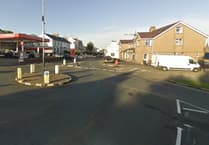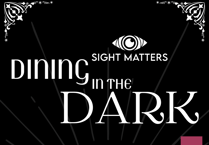Next week sees the launch of Huntington’s Awareness Month but how much do any of us really know about the disease?
Helen Martin is chairman of the Huntington’s Disease Isle of Man charity, and as well as running the local support group cares for her husband who has the disease.
Helen said that Huntington’s was not a disease that you can catch, rather it is caused by a faulty gene.
A parent who has the faulty gene has a 50% chance of passing it on to their children.
She added: ’A genetic test can find out if you have the faulty gene.
’And you can live with the faulty gene for years without symptoms, but if you do have it, at some stage you will develop symptoms and doctors cannot tell when this will be.’
The disease can began to present symptoms at any age. However, most people begin to show signs between the ages of 30 and 50. For those who present symptoms under the age of 20, this is called Juvenile Huntington’s.
The symptoms of Huntington’s are not straight forward and can vary even within families who carry the faulty gene.
However, as a guide, movement disorder is usually the first obvious symptom followed by cognitive and behavioural disorder.
But this can result in the symptoms being misdiagnosed as for example Parkinson’s or Alzheimer’s disease.
Mrs Martin added: ’Most people describe Huntington’s as having Motor Neurone Disease, Parkinson’s, dementia and schizophrenia all at once.
’It is generally talked about being the worst disease known to mankind due to the large amount of varied symptoms, also making it very difficult to diagnose if there is no history in the family.’
As the disease progresses, people will lose weight, lose their cognitive abilities and require more care as they struggle concentrating on one thing at a time.
While there is no cure, a programme of medication and therapies can help to manage the symptoms.
And it is here where HDA Isle of Man comes in. It has provided every GP surgery in the island with leaflets on the disease with information about the support network available for sufferers and their friends and family.
The support group meets once a month and alongside the charity organises fund raising and provides the support network to allow Manx residents to share their experiences and help one another.
It also assists with transfer costs to events in the UK and with purchasing specialist equipment.
Towards the end of May, the charity will be holding a fundraising event with Donna Whalley of Paracise, which is a type of exercise class designed for people with lower mobility.Isle of Man Newspapers will provide more information on the event closer to the time. For more information on HDA Isle of Man, search IOMHDA on Facebook, email [email protected] or call 402625.




